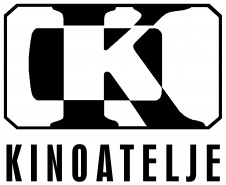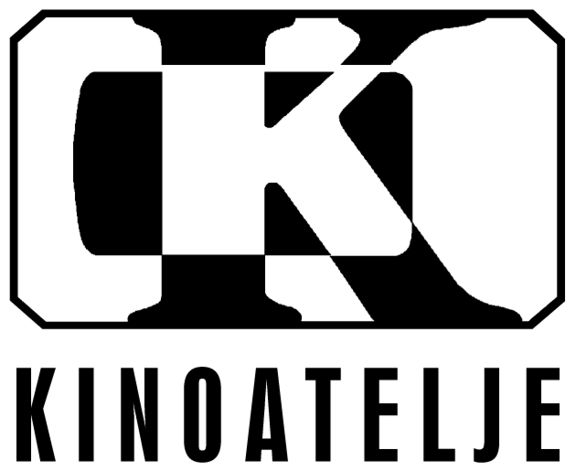Difference between revisions of "Kinoatelje"
(adding links) |
(update by request) |
||
| Line 1: | Line 1: | ||
{{Article | {{Article | ||
| − | | status = | + | | status = TOPROOFREAD NIFERTIK! |
| − | | maintainer = | + | | maintainer = Editor |
}} | }} | ||
{{Infobox | {{Infobox | ||
| Line 20: | Line 20: | ||
| role = President | | role = President | ||
}} | }} | ||
| − | + | ||
| − | |||
| − | |||
| − | |||
| − | |||
| − | |||
| − | |||
{{Contact | {{Contact | ||
| name = Mateja Zorn | | name = Mateja Zorn | ||
| Line 32: | Line 26: | ||
| email = zorn@mail.ljudmila.org | | email = zorn@mail.ljudmila.org | ||
}} | }} | ||
| − | + | ||
| − | |||
| − | |||
| − | |||
| − | |||
| − | |||
| − | |||
| − | |||
| − | |||
| accounts = | | accounts = | ||
https://www.facebook.com/Kinoatelje | https://www.facebook.com/Kinoatelje | ||
| Line 49: | Line 35: | ||
{{Teaser| | {{Teaser| | ||
| − | + | [[Kinoatelje]], the centre for audio-visual and intercultural services was established in [[established::1977]] by [[Darko Bratina]] (1942–1997) in Gorizia-Gorica, a town situated on the Italian side of the Italo-Slovene border. Bratina was a sociologist and a film critic who considered film, television and video media as some of the best means of understanding society, history and culture. Since its establishment, Kinoatelje’s main goal has been to promote intercultural dialogue, a collaboration between Italy and Slovenia, and to introduce Slovene cinema to the Italian public. | |
| + | |||
| + | Kinoatelje’s activities encompass film production, educational projects for the youth, workshops for professional educators, research projects, publishing of books, film festival organization and other events connected to the cinema, as well as many other activities. | ||
| + | |||
}} | }} | ||
| − | |||
| − | Since | + | == Programme == |
| + | |||
| + | In 1981, Kinoatelje organised the first retrospective of Slovene cinema in Italy, including productions between 1948 and 1981, called ''Cinema sloveno''. It was followed by various avant-premières of Slovene films and other retrospectives. Since then, Kinoatelje has organised several events and projects, including Film Video Monitor, Gorica Kinema-Gorizia Cinema, Cinematography in Gorica 1896–1918, Film 100 Gorica, Mittelmonitor, Una città dimenticata (The Forgotten City), Remakes, A Chronicle of Love, and Film and Culture in Gorizia from the Avant-garde up to Nowadays. A special research project was dedicated to stage and film actress Nora Gregor (1901–1949), a native of Gorizia. | ||
| + | |||
| + | |||
| + | |||
| + | == Production & Kinoatelje Institute == | ||
| + | |||
| + | In 2003, Kinoatelje established its Slovene branch the [[Kinoatelje Institute]] and they produced together several multimedia projects and documentaries. Jointly with the author tandem [[Nadja Velušček]] and [[Anja Medved]], were conceived and directed many documentaries, exploring the complexity of border identities through personal and collective memory. The first among them was ''My Borderline'' (''Moja meja''). The Kinoatelje film collection also features ''A small Apocalypse'' (''Mala Apokalipsa'', 2008), Alvaro Petricig’s experimental film about abandoned villages in a remote Italian corner along the border, ''Beyond the Wire'' (''Onstran žice'', 2012), a documentary feature film about the Gonars concentration camp directed by Dorino Minigutti, and ''A Calm day'' (''Miren dan'', 2018) the feature debut by [[Jan Mozetič]]. | ||
| + | |||
| + | == Tribute to a Vision festival == | ||
| − | |||
| − | |||
| − | + | Since 1999, Kinoatelje organizes the annual cross-border film festival [[Tribute to a Vision]], taking place in the inter-regional space between Slovenia and Italy, thus connecting audiences and film institutions in 7 different cities (Gorizia, Nova Gorica, Trieste, Izola, San Pietro al Natisone, Udine and Ljubljana). The physical distances might not be great, but the colourful cultural variety imparts a unique enrichment in our shared cross-border space. The centrepiece of the festival is the Darko Bratina Award along with a complete presentation of the winning author’s filmography. Previous recipients of the award include Kim Longinotto, Peter Mettler, Dalibor Matanić, Ruth Beckermann, [[Karpo Godina]], Želimir Žilnik, Miroslav Janek, and many others. The film platform First Crossings, developed as an inherent part of the festival, is dedicated to the research of new film languages with a special focus on young audiences. | |
| − | In | + | |
| + | == Educational programme == | ||
| + | |||
| + | |||
| + | In the last decade, Kinoatelje focused on developing cross-border educational film programmes and projects which promote creative and critical thinking among the young, teachers and mentors. Some of the past projects include ''The Refugee's Suitcase'', ''From Diary to Blog'', the [[Nova Gorica Youth Film Campus]], etc. | ||
== See also == | == See also == | ||
| − | *[[ | + | *[[Kinoatelje Institute] |
== External links == | == External links == | ||
*[http://www.kinoatelje.it Kinoatelje website] (in Slovenian and Italian) | *[http://www.kinoatelje.it Kinoatelje website] (in Slovenian and Italian) | ||
| − | *[http://www.film-center.si/index.php?module=fdb&op=people&peopleID=4615 | + | * [Tribute to a Vision – cross-border film festival] |
| − | *[http://www.film-center.si/index.php?module=fdb&op=people&peopleID=4615 Kinoatelje | + | *[http://www.film-center.si/index.php?module=fdb&op=people&peopleID=4615 Kinoatelje’s portfolio on the Slovene Film Centre website] |
| − | *[ | + | *[http://www.film-center.si/index.php?module=fdb&op=people&peopleID=4615 Kinoatelje Institute portfolio on the Slovene Film Centre website] |
| + | *[Darko Bratina intellectual heritage website ] | ||
| + | |||
[[Category:Film]] | [[Category:Film]] | ||
Revision as of 02:09, 20 May 2020
Programme
In 1981, Kinoatelje organised the first retrospective of Slovene cinema in Italy, including productions between 1948 and 1981, called Cinema sloveno. It was followed by various avant-premières of Slovene films and other retrospectives. Since then, Kinoatelje has organised several events and projects, including Film Video Monitor, Gorica Kinema-Gorizia Cinema, Cinematography in Gorica 1896–1918, Film 100 Gorica, Mittelmonitor, Una città dimenticata (The Forgotten City), Remakes, A Chronicle of Love, and Film and Culture in Gorizia from the Avant-garde up to Nowadays. A special research project was dedicated to stage and film actress Nora Gregor (1901–1949), a native of Gorizia.
Production & Kinoatelje Institute
In 2003, Kinoatelje established its Slovene branch the Kinoatelje Institute and they produced together several multimedia projects and documentaries. Jointly with the author tandem Nadja Velušček and Anja Medved, were conceived and directed many documentaries, exploring the complexity of border identities through personal and collective memory. The first among them was My Borderline (Moja meja). The Kinoatelje film collection also features A small Apocalypse (Mala Apokalipsa, 2008), Alvaro Petricig’s experimental film about abandoned villages in a remote Italian corner along the border, Beyond the Wire (Onstran žice, 2012), a documentary feature film about the Gonars concentration camp directed by Dorino Minigutti, and A Calm day (Miren dan, 2018) the feature debut by Jan Mozetič.
Tribute to a Vision festival
Since 1999, Kinoatelje organizes the annual cross-border film festival Tribute to a Vision, taking place in the inter-regional space between Slovenia and Italy, thus connecting audiences and film institutions in 7 different cities (Gorizia, Nova Gorica, Trieste, Izola, San Pietro al Natisone, Udine and Ljubljana). The physical distances might not be great, but the colourful cultural variety imparts a unique enrichment in our shared cross-border space. The centrepiece of the festival is the Darko Bratina Award along with a complete presentation of the winning author’s filmography. Previous recipients of the award include Kim Longinotto, Peter Mettler, Dalibor Matanić, Ruth Beckermann, Karpo Godina, Želimir Žilnik, Miroslav Janek, and many others. The film platform First Crossings, developed as an inherent part of the festival, is dedicated to the research of new film languages with a special focus on young audiences.
Educational programme
In the last decade, Kinoatelje focused on developing cross-border educational film programmes and projects which promote creative and critical thinking among the young, teachers and mentors. Some of the past projects include The Refugee's Suitcase, From Diary to Blog, the Nova Gorica Youth Film Campus, etc.
See also
- [[Kinoatelje Institute]
External links
- Kinoatelje website (in Slovenian and Italian)
- [Tribute to a Vision – cross-border film festival]
- Kinoatelje’s portfolio on the Slovene Film Centre website
- Kinoatelje Institute portfolio on the Slovene Film Centre website
- [Darko Bratina intellectual heritage website ]




